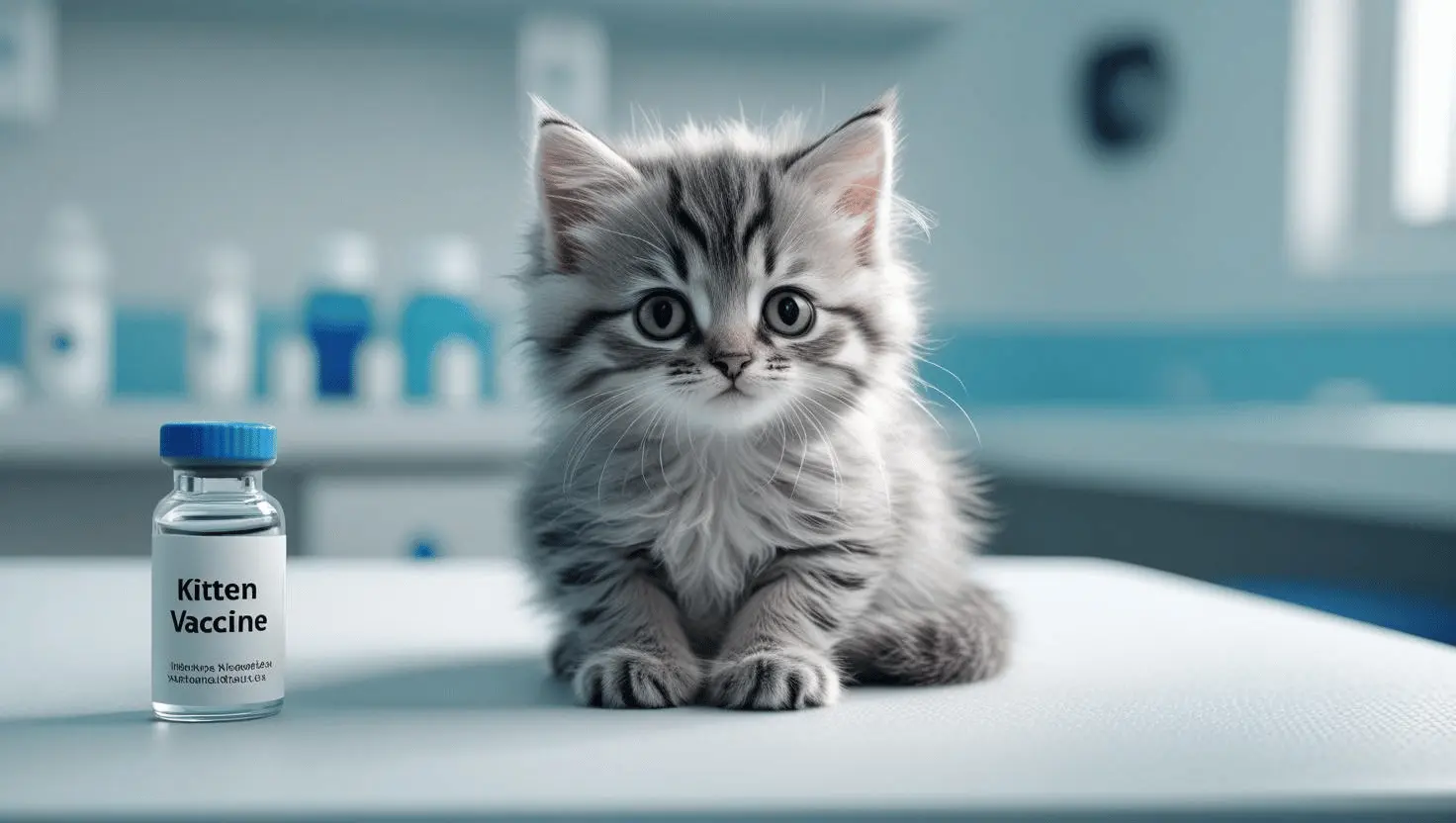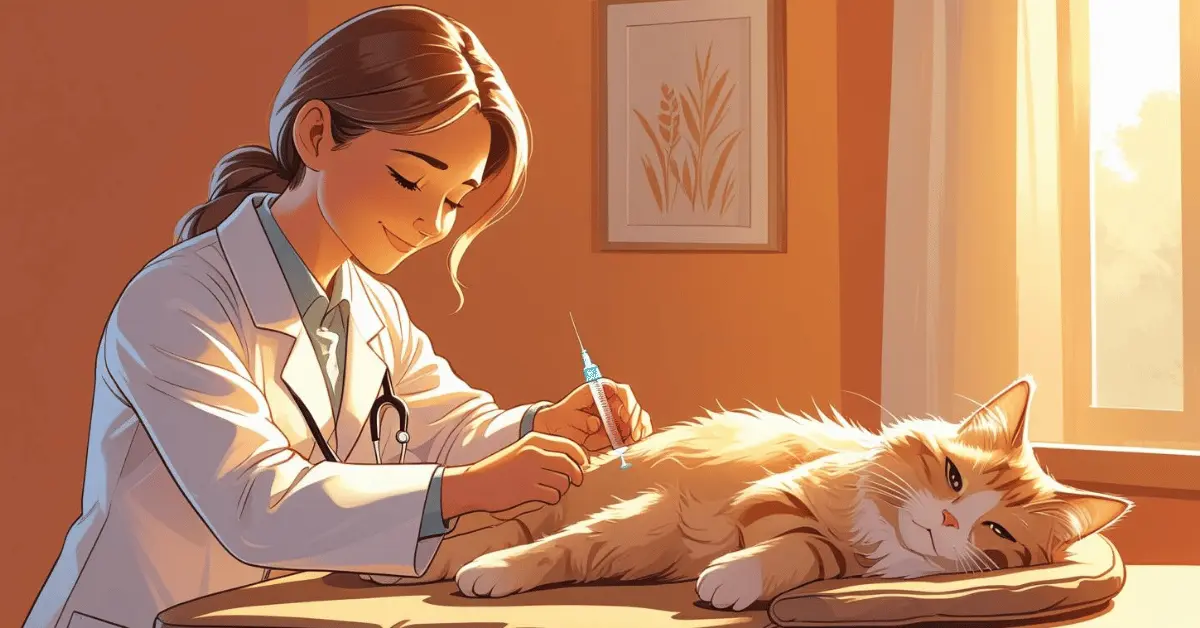The truth is, even indoor house cats need to be vaccinated. Certain viruses can still find their way indoors, and preventive care is the best way to keep your feline safe and healthy.
Why Vaccinations Matter for Indoor Cats
Vaccines are not just for outdoor pets. Even house cats face health risks that make vaccinations a wise choice.
Protection Against Airborne and Surface Viruses
Viruses like feline herpesvirus and calicivirus can spread through the air or contaminated surfaces. Something as simple as you petting another cat outside and then touching your cat indoors could expose them to illness.
Preventing Serious Illnesses
Diseases such as rabies, feline leukemia, and panleukopenia can be life-threatening. Vaccinations ensure your cat has immunity against these severe conditions, reducing the risk of suffering and costly treatments.
Core Vaccines Every Cat Needs
Veterinarians recommend a set of core vaccines that all cats—indoor or outdoor—should receive.
FVRCP Vaccine
Often referred to as the “distemper shot,” this combination vaccine protects against three highly contagious and dangerous feline diseases.
Rabies Vaccine
Even if your cat never leaves your home, rabies vaccination is legally required in many regions. Rabies is fatal, and because it can spread to humans, prevention is crucial.
Optional (Non-Core) Vaccines for Some Cats

Depending on your cat’s lifestyle, your vet may recommend additional vaccines.
Feline Leukemia Virus (FeLV)
While most common in outdoor cats, FeLV can still pose a risk if your cat ever escapes or encounters other cats. Kittens are often vaccinated against FeLV as a precaution.
Bordetella and Chlamydia Vaccines
These are less common but may be suggested if your cat will be in a multi-cat household, boarding facility, or animal shelter environment.
How Often Should House Cats Be Vaccinated?
Vaccination schedules can vary, but regular boosters are essential to maintain immunity.
Kitten Schedule
- Initial vaccines begin at 6–8 weeks old
- Boosters every 3–4 weeks until about 16 weeks old
Adult Cat Schedule
- Rabies: usually once a year (some last 3 years depending on the vaccine and local laws)
- FVRCP: every 1–3 years depending on vet recommendation
- FeLV: annually if needed
Related Posts
- Are Carnations Poisonous to Cats?
- Are Prayer Plants Toxic to Cats?
- Do Cats Need Other Cats? Key Signs to Watch For
- Why Does My Cat Lick Me Then Bite Me?
Common Misconceptions About Cat Vaccines
Pet owners often hesitate to vaccinate indoor cats due to myths and misinformation.
“My Cat Never Goes Outside, So They Don’t Need Shots”
Even indoor cats can be exposed to viruses via human shoes, clothing, or other pets.
“Vaccines Are Unsafe for Cats”
Modern vaccines are rigorously tested. While mild side effects like soreness or sleepiness are possible, serious reactions are extremely rare compared to the dangers of disease.
Costs and Practical Considerations

Budgeting for vaccinations is an important part of cat care.
Typical Price Range
Core vaccines usually range between $50–$100 per year, depending on location and vet clinic. Package deals at animal clinics can reduce costs.
Veterinary Wellness Plans
Some vets offer wellness plans that include annual checkups and vaccinations, making preventive care more affordable over time.
Conclusion: Vaccines Keep House Cats Healthy and Safe
So, do house cats need to be vaccinated? The answer is yes. By staying on top of core vaccines like FVRCP and rabies—and considering optional ones based on your cat’s lifestyle—you ensure your feline companion lives a safe, healthy, and happy life.
For more detailed vaccine guidelines, visit the American Veterinary Medical Association (AVMA).
Frequently Asked Questions
What happens if I don’t vaccinate my indoor cat?
If your cat isn’t vaccinated, they are more vulnerable to severe illnesses like panleukopenia, feline herpesvirus, and calicivirus.
Do indoor cats really need rabies shots?
Yes. In many places, rabies vaccination is legally required for all cats, even those kept strictly indoors.
How much do cat vaccinations cost?
Core vaccines typically cost between $50–$100 annually depending on your vet and location.
Are vaccines safe for cats?
Yes, cat vaccines are safe. Most cats only experience mild side effects such as sleepiness or slight soreness at the injection site.
How often do indoor cats need booster shots?
Most adult cats need boosters every 1–3 years. Rabies is usually required annually or every 3 years depending on local laws.

